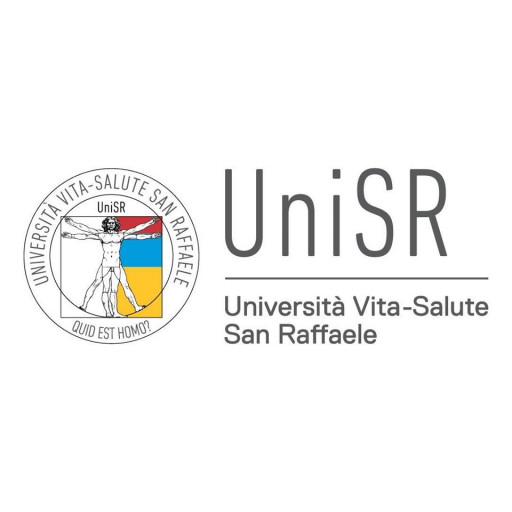Photos of university / #uni_bremen
The programme focuses on geoscientific aspects of climate, resources and technologies in the marine environment. These issues are under investigation at the leading German marine research institutions in Bremen and Bremerhaven. The multidisciplinary nature of these research fields as well as the application of up-to-date scientific methods, instruments and computing strongly influence teaching methods and topics.
Research in marine geosciences has a long tradition in Bremen and constitutes the main focus at the Department of Geosciences of the University of Bremen. All aspects of marine geosciences are covered, from sedimentology to petrology, from geophysics to biogeochemistry, from basic research to applied technology.
With the establishment of MARUM, the Center for Marine Environmental Sciences, the University of Bremen has created a leading international institute for planning and carrying out interdisciplinary marine science. Studies within MARUM focus on the three research areas "Ocean and Climate", "Geosphere-Biosphere Interactions" and "Sediment Dynamics". The multidisciplinary nature of marine geoscientific research and the application of up-to-date scientific instruments play an important role in teaching methods and topics.
The international, postgraduate study programme in Marine Geosciences is designed to research related topics, placing particular emphasis on the specialities of the Bremen department. The programme comprises skills and methods which enable graduates to critically evaluate scientific results, and it provides a solid professional qualification for tasks in science and its applications.
Research in marine geosciences has a long tradition in Bremen and constitutes the main focus at the Department of Geosciences of the University of Bremen. All aspects of marine geosciences are covered, from sedimentology to petrology, from geophysics to biogeochemistry, from basic research to applied technology.
With the establishment of MARUM, the Center for Marine Environmental Sciences, the University of Bremen has created a leading international institute for planning and carrying out interdisciplinary marine science. Studies within MARUM focus on the three research areas "Ocean and Climate", "Geosphere-Biosphere Interactions" and "Sediment Dynamics". The multidisciplinary nature of marine geoscientific research and the application of up-to-date scientific instruments play an important role in teaching methods and topics.
The international, postgraduate study programme in Marine Geosciences is designed to research related topics, placing particular emphasis on the specialities of the Bremen department. The programme comprises skills and methods which enable graduates to critically evaluate scientific results, and it provides a solid professional qualification for tasks in science and its applications.
Educational organisation
The interdisciplinary character of Marine Geosciences is reflected in a topic-oriented course structure. The programme strongly emphasises the understanding and modelling of processes and dynamics in natural systems.Courses are held as lectures, seminars, exercises, field courses and projects.
A conference on geoscience topics relevant to society, organised by the students, and a field and lab practice course are mandatory during the first year.
In the compulsory elective part, courses on biogeochemical processes, climate change, marine environmental archives, marine resources and geotechnology, physics and petrology of the ocean crust, and sedimentary structures and processes are offered. By choosing three of these six core subjects, students can develop an individual profile.
During the third semester, an individually organised survey project is carried out, followed by a seminar on the conception and publication of research work. The fourth semester is dedicated to the Master's thesis. A final colloquium presentation of the thesis project completes the programme.
Study abroad unit(s)
A study exchange for a semester abroad is recommended.Exchange studies at nine partner universities within the ERASMUS+ framework are supported. International partnerships with four universities worldwide provide opportunities to integrate an overseas experience.
Internships
NoneForms of assessment
Examinations are taken as written tests, oral examinations, seminar papers, presentations, project work (with reports and colloquia), processing of exercises, homework or field course reports. Form, deadlines, and extent of examinations will be specified by the lecturer at the beginning of each course.Course objectives
The programme enables graduates to create and critically assess scientific results and to plan, carry out, and evaluate ship and laboratory projects independently and responsibly. With their scientific, technical, and vocational skills, graduates are excellently prepared for a variety of jobs, such as marine geoscientific research at universities, research centres or authorities, coastal management, exploration for resources off-shore or at sea, consulting on coastal or marine engineering projects, scientific journalism, or scientific management at an (inter)national level.Language requirements
English: internationally recognised proficiency test, level C1 according to the European Framework of Reference for Languages, e.g. TOEFL (IBT 90 points), IELTS Band 6.5Academic requirements
- Explicit interest in marine geosciences
- Bachelor of Science in a geoscientific field (or a comparable qualification)
- at least 30 ECTS credit points or an equivalent amount of courses of the curriculum in mathematics, physics, chemistry and/or biology
- at least 60 ECTS credit points or an equivalent amount of courses of the curriculum in geosciences
- very good command of the English language (textbook and teaching language; internationally recognised English proficiency test for non-native speakers, level C1 of the Common European Framework of Reference for Languages)
- capacity to work both independently and as part of a team
- intercultural competence
Want to improve your English level for admission?
Prepare for the program requirements with English Online by the British Council.
- ✔️ Flexible study schedule
- ✔️ Experienced teachers
- ✔️ Certificate upon completion
📘 Recommended for students with an IELTS level of 6.0 or below.
Enrolment fees
Approx. 280 EUR per semester; the fee includes a semester ticket covering public transport in the Bremen metropolitan area.Costs of living
Approx. 800 EUR per month to cover personal expenses; in addition, up to 1,000 EUR for field trips during the first year of studyJob opportunities
Well-qualified students may find a job as a student assistant in one of the working groups at the department. Access is limited and by no means guaranteed, and the salary is not sufficient to cover living expenses.Arrival support
Newcomer service: transfer from airport/central station to accommodation; help with formalities regarding enrolment, health insurance, registration, visa; campus guidance; social activities Language course "Survival German"Services and support for international students
Department: programme coordinatorInternational Office: general support, "kompass" project (language training, workshops for academic research and writing, social tutors, academic mentors)











